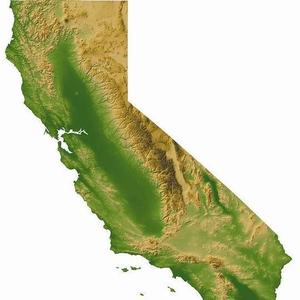CARB releases set of biodiesel, renewable diesel LCFS pathways

July 1, 2016
BY Ron Kotrba
California Air Resources Board released a set of carbon intensity (CI) pathways June 30 for biodiesel and renewable diesel pathways certified under the readopted low carbon fuel standard (LCFS) regulation using the CA-GREET 2.0 model. According to CARB, these pathways include both new applications and requests to have legacy pathways, or pathways adopted under the earlier LCFS rule, recertified.
All of the CIs released June 30 are for biodiesel and renewable diesel pathways, CARB stated. Similar batches will be released in the future for the remaining fuel types.
CARB previously shared the biodiesel and renewable diesel pathways for review and acceptance by the individual applicants on either June 3 or June 17, and the board states that only those pathways accepted by applicants are being certified and released in the June 30 batch.
In addition, two new Tier 2 pathways—from New Leaf Biofuel and Crimson Renewable Energy for self-rendered used cooking oil (UCO) from California to biodiesel and North American UCO to biodiesel, respectively—are being released for public comments here.
Advertisement
Advertisement
The comment period for these two new Tier 2 pathways is 10 days, after which CARB will review submitted comments, request applicants to address substantive issues raised and move to certify them.
All pathways certified as part of the June 30 batch release may be used for credit reporting purposes, according to CARB, beginning with reports for Q2 2016.
To access all certified CIs, including the newly released pathways, click here.
Finally, CARB noted that the list of certified CIs currently includes all CIs certified using CA-GREET 2.0 and all active pathway CIs certified under CA-GREET 1.8b, but the latter are only eligible to earn credits through Dec. 31.
Advertisement
Advertisement
Related Stories
The USDA significantly increased its estimate for 2025-’26 soybean oil use in biofuel production in its latest World Agricultural Supply and Demand Estimates report, released July 11. The outlook for soybean production was revised down.
U.S. fuel ethanol capacity fell slightly in April, while biodiesel and renewable diesel capacity held steady, according to data released by the U.S. EIA on June 30. Feedstock consumption was down when compared to the previous month.
The U.S. EPA on July 8 hosted virtual public hearing to gather input on the agency’s recently released proposed rule to set 2026 and 2027 RFS RVOs. Members of the biofuel industry were among those to offer testimony during the event.
The USDA’s Risk Management Agency is implementing multiple changes to the Camelina pilot insurance program for the 2026 and succeeding crop years. The changes will expand coverage options and provide greater flexibility for producers.
President Trump on July 4 signed the “One Big Beautiful Bill Act.” The legislation extends and updates the 45Z credit and revives a tax credit benefiting small biodiesel producers but repeals several other bioenergy-related tax incentives.
Upcoming Events










